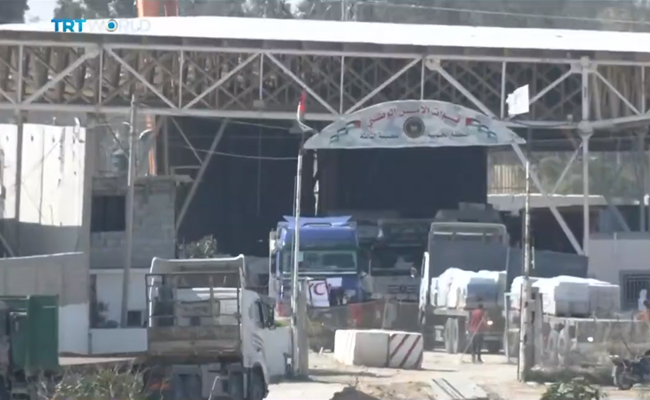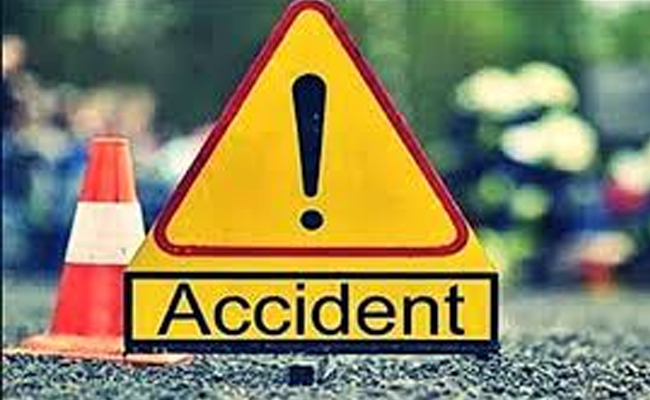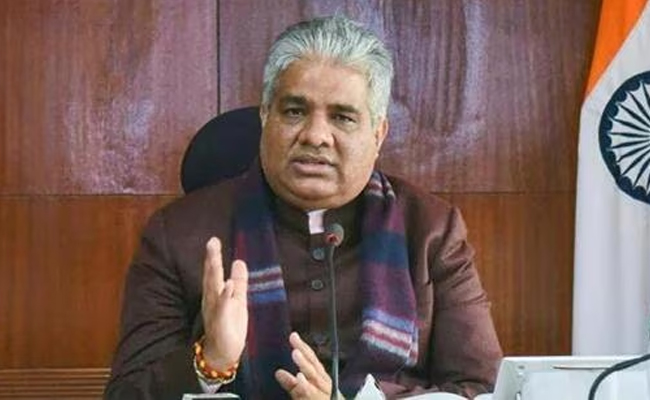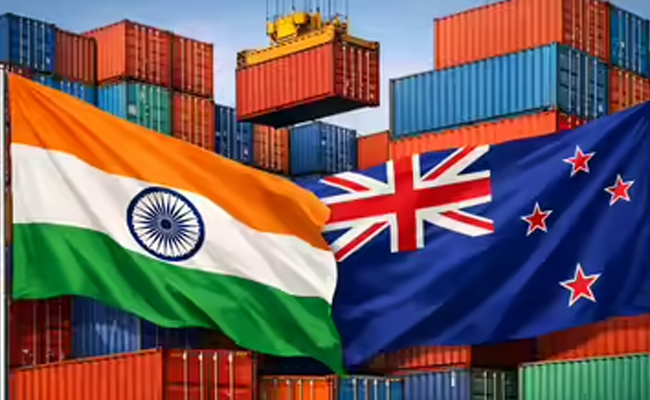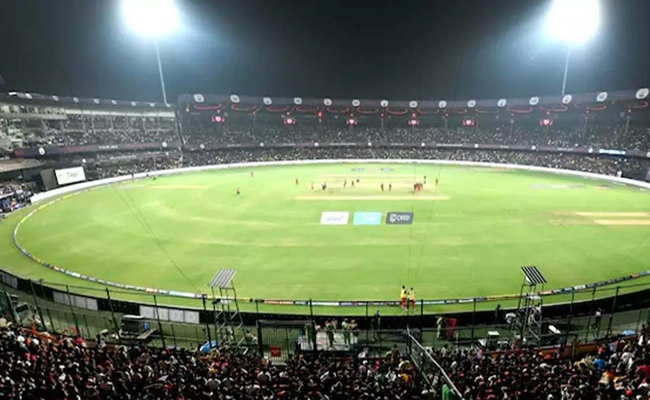Rafah (Gaza Strip) (AP/PTI): The border crossing between Egypt and Gaza opened on Saturday to let desperately needed aid flow to Palestinians running short of food, medicine and water in the territory that is under an Israeli siege.
More than 200 trucks carrying roughly 3,000 tonnes of aid had been positioned near the crossing for days before heading into Gaza. An Associated Press reporter saw the trucks entering.
Many in Gaza, reduced to eating one meal a day and without enough water to drink, are waiting desperately for the aid. Hospital workers were also in urgent need of medical supplies and fuel for their generators as they treat huge numbers of people wounded in the bombings.
Hundreds of foreign passport holders also waited to cross from Gaza to Egypt to escape the conflict.
Israel has sealed off the territory for two weeks, forcing Palestinians to ration food and to drink filthy water from wells. Hospitals say they are running low on medicine and fuel for emergency generators amid a territory-wide blackout.
A line of empty flatbed trucks could be seen moving on the Gaza side, perhaps in preparation for bringing in the desperately needed aid. Israel said Friday it does not plan to take long-term control over the tiny territory, home to some 2.3 million Palestinians.
Work continued Friday to repair the road at the Rafah crossing with Egypt, Gaza's only entry point not controlled by Israel. Trucks unloaded gravel, and bulldozers and other equipment were used to fill in large craters.
But there also appeared to still be differences over the manner of delivering aid. U.N. Secretary-General Antonio Guterres was working with Egypt, Israel, the U.S. and others to overcome the "impasse" preventing the trucks from entering, U.N. deputy spokesman Farhan Haq told reporters Friday.
Guterres wants to ensure "meaningful" numbers of trucks cross daily, that inspection of truck cargo is "expedited" and that U.N. authorities have fuel to distribute the supplies within Gaza.
More than 200 trucks and some 3,000 tons of aid were positioned near the crossing. Israel said the supplies could only go to civilians and that it would "thwart" any diversions by Hamas. It was unclear if fuel for the hospital generators would be allowed to enter.
Let the Truth be known. If you read VB and like VB, please be a VB Supporter and Help us deliver the Truth to one and all.
Thrissur (Kerala) (PTI): A man was arrested on Monday after a 14-year-old boy was killed when a car overturned during a stunt-driving incident at Chamakala Rajiv Road beach in Chentrappinni here, police said.
The arrested accused was identified as Shajeer alias Saddam (36), a native of Kurikkuzhi in Kaipamangalam.
According to police, the incident occurred around 6 pm on Sunday when the accused allegedly performed dangerous drifting manoeuvres with an open-top Gypsy vehicle at the beach, without following any safety norms.
The accused picked up three minors — Mohammed Sinan (14), Mohammed Shafeer (14) and Ameer (12) — who were playing at the beach, and made them sit at the rear of the vehicle before driving recklessly.
While performing the drifting stunt, the vehicle went out of control and overturned, trapping Sinan underneath.
He suffered severe head injuries and succumbed to the impact, police said.
Based on a complaint, Kaipamangalam police registered a case under Section 105 (culpable homicide) of the Bharatiya Nyaya Sanhita.
After completing the preliminary probe, police arrested Shajeer on Monday.
He was later produced before a court and remanded to judicial custody, police said.
The accused is involved in 11 criminal cases.

